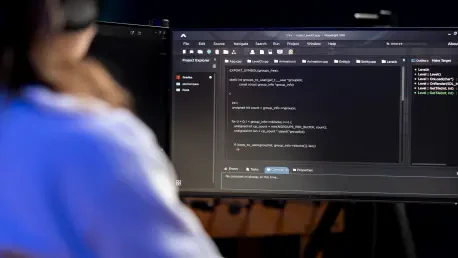I’m thrilled to sit down with Anand Naidu, our resident development expert, who brings a wealth of knowledge in both frontend and backend programming. With his deep understanding of various coding languages and the rapidly evolving landscape of AI coding assistants, Anand is the perfect person to guide us through the recent shifts in tools like Anthropic’s Claude, Google’s Gemini, and emerging players like Qwen. In this conversation, we’ll explore the changing dynamics of AI-driven code generation, the impact of new pricing and rate limits on developers, and what the future might hold for these technologies.
How did Claude Code initially capture the attention of so many developers, and what made it stand out in the crowded AI coding space?
Claude Code really took off because it offered something developers couldn’t resist: a powerful, accessible tool at a price point that felt like a steal. The $200 all-you-can-eat plan was a game-changer, giving users access to high-end models like Sonnet and Opus 4 without breaking the bank. Beyond pricing, the ability to tap into Opus 4—a model known for smarter reasoning—set it apart from competitors. It wasn’t just about generating code; it was about generating better code, faster, and that resonated with devs who needed reliable assistance for complex projects.
What’s your perspective on Anthropic’s recent decision to introduce weekly rate limits for Claude, and how do you see this affecting the developer community?
I think this move is going to be a tough pill to swallow for a lot of developers, especially those who leaned on Claude for heavy-duty code generation. The all-you-can-eat model was a big draw, and now with these limits, workflows that depend on running multiple instances or handling large-scale projects overnight are going to take a hit. It’s not just about the cost—it’s the disruption to established processes. I expect we’ll see some devs looking for alternatives, while others might try to work around the limits, though that’s easier said than done.
Turning to Google’s Gemini CLI, how do you think its free tier and the shift from Gemini-2.5-Pro to Gemini-2.5-Flash impacts its appeal to developers?
Gemini CLI came out with a lot of promise, especially with that generous free tier, but the downgrade to Flash from Pro is a real sticking point. Flash just doesn’t cut it for serious coding tasks—it’s noticeably less capable, and developers will feel that drop in quality immediately. It’s frustrating because the free tier looks great on paper, but the reality of throttled performance undermines its value. Google’s got an opportunity here, but they need to balance accessibility with reliability if they want to win over the coding crowd.
You’ve worked on forking Gemini CLI to support other providers and models. What drove you to take on that customization, and what gaps were you aiming to fill?
Honestly, I saw a lot of potential in Gemini CLI, but it felt too restrictive out of the box. Being locked into specific models or dealing with forced downgrades to Flash didn’t sit right with me or many other developers. I wanted to give users more flexibility—whether that’s choosing different providers, experimenting with local models, or just having a say in how the tool behaves. Customization like this empowers developers to tailor the tool to their needs, rather than adapting their workflow to the tool’s limitations.
Let’s talk about Qwen3-Coder. What makes this open-source model stand out to you compared to other options in the market?
Qwen3-Coder has been a pleasant surprise in the open-source space. Unlike a lot of hyped-up models that fizzle out, this one delivers performance that feels comparable to something like Claude 3.7 Sonnet, which is saying a lot. It’s not perfect, but it’s reliable enough to accept patches and handle real-world coding tasks. What’s exciting is that it shows open-source models, and even those developed in China, have a serious future. It’s a step toward democratizing AI coding tools, and I’m curious to see how it evolves.
With all these changes in the AI coding assistant landscape, what’s your forecast for the future of these tools and their role in software development?
I think we’re at a fascinating crossroads. The competition between players like Anthropic, Google, and emerging names like Qwen is going to drive innovation, but it’s also going to create uncertainty for developers who need stable tools. I expect we’ll see more focus on balancing cost with performance—developers won’t settle for less just because it’s cheaper. Additionally, open-source models are likely to gain more traction as they mature, potentially challenging the dominance of proprietary systems. My hope is that this push and pull results in tools that are not only powerful but also more accessible and customizable for all kinds of projects.









